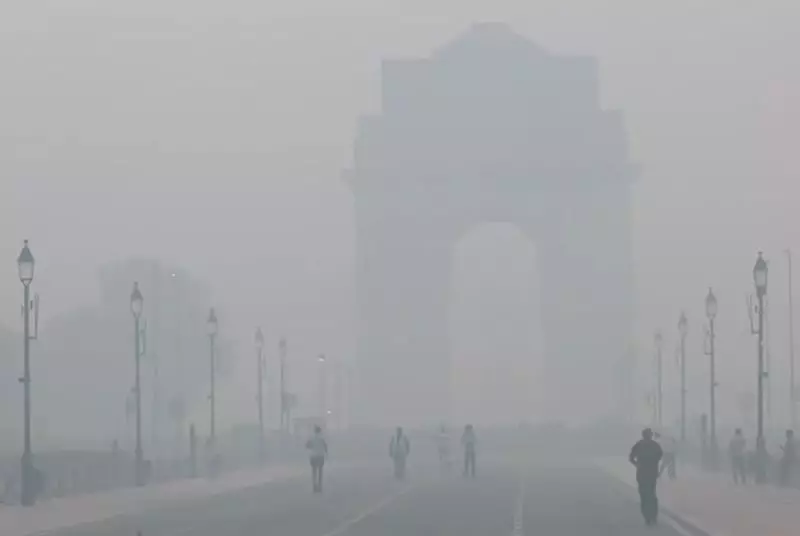
The festive cheer of Diwali quickly turned into a health concern for Delhi residents as the city woke up to a thick blanket of smog the morning after celebrations. Despite stringent measures and promises of a cleaner festival, the air quality index (AQI) skyrocketed to alarming levels across the national capital region.
AQI Crosses Dangerous Thresholds
Multiple monitoring stations recorded AQI values well above 500, pushing the overall air quality into the 'severe' category. The concentration of PM2.5 - microscopic particles that can penetrate deep into lungs - reached 30 to 40 times the World Health Organization's safe limits in several areas.
Areas including Anand Vihar, RK Puram, and Punjabi Bagh were among the worst affected, with visibility reduced significantly and residents reporting breathing difficulties and eye irritation.
Green Crackers Fail to Deliver Promised Relief
The much-touted 'green crackers' and government restrictions appeared to have minimal impact on controlling pollution levels. While authorities had implemented a complete ban on firecrackers except for the 'green' variety, widespread violations were reported across the city.
Environmental experts noted that the green crackers, while marginally less polluting than conventional ones, still contribute significantly to air pollution when used in large quantities.
Multiple Factors Compound the Crisis
The post-Diwali pollution spike wasn't solely due to firecrackers. Meteorological conditions played a crucial role in trapping pollutants close to the ground:
- Low wind speeds prevented dispersion of pollutants
- High moisture content in the air facilitated particle formation
- Temperature inversion created a 'lid' effect, trapping smog
- Existing pollution from vehicles and industries added to the crisis
Health Advisory Issued for Residents
Medical authorities have issued urgent health advisories, particularly for vulnerable groups:
- Avoid outdoor activities, especially morning walks
- Wear N95 masks when stepping outside
- Keep windows and doors closed
- Use air purifiers indoors
- Stay hydrated and seek medical help if experiencing breathing difficulties
The situation has reignited debates about the effectiveness of current pollution control measures and the need for more comprehensive solutions to tackle Delhi's perennial air quality crisis, especially during the winter months when meteorological conditions become particularly challenging.





